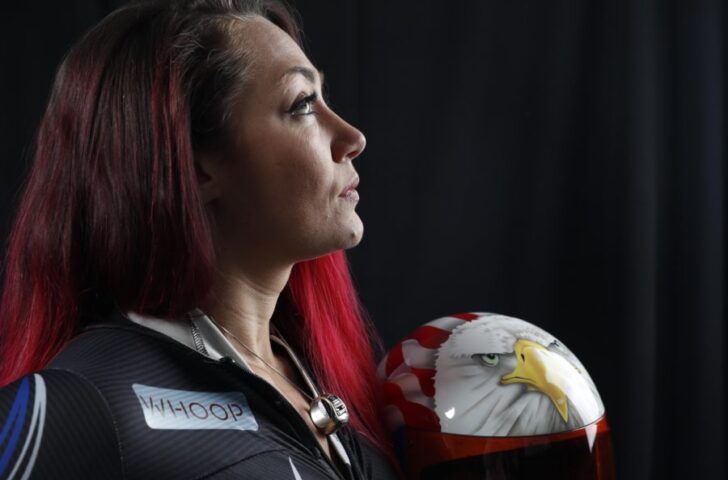Katie Uhlaender’s hopes of winning a medal in skeleton in the 2014 Sochi Olympics were finally dashed on Feb. 1, when the Court Arbitration for Sport overturned bans for 28 Russian athletes, including Elena Nikitina — who narrowly beat Uhlaender for third place in Sochi.
In 2014, Nikitina was ever-so-slightly faster than Uhlaender, claiming the bronze medal by only four-hundredths of a second over four runs. However, Nikita was eventually stripped of her medal for doping, and Uhlaender was next in line for that bronze. Not only was Uhlaender excited to finally win a medal for her country, but she was pleased that the International Olympics Committee did the right thing.
“They say, ‘Everyone is doping,'” Uhlaender told The Salt Lake Tribune on Dec. 6. “And I’m like, ‘something had to be done to draw a line and change the culture and show that doping is not okay.’ …For the IOC to take a hard stand and draw a line, that was the only thing that could be done to re-instill my belief in the Olympic movement.”
However, Uhlaender’s optimism turned out to be short-lived. When the Court Arbitration for Sport reversed Nikitina’s ban, they restored her medal, as well.
“It just makes me sad,” Uhlaender told The Washington Post on Feb. 1. “I thought the IOC was taking a strong stand and protecting clean athletes and the integrity (of the sport), and I hope that they continue to do so, because it will add fuel to my fire and help me fight. Right now, it’s not just me — a lot of athletes feel like we’re believing in a movement that is dying.”
When Nikitina’s ban was overturned, Uhlaender had just arrived in PyeongChang, South Korea for the 2018 Olympic Games and was looking forward to training and competing. After hearing the news about the ruling, she felt broken.
“This is a distraction,” Uhlaender told The Washington Post on Feb 1. “I’m a human being. There is a lot of emotion in just seeing something so unjust happen. But to be a good human, to be a good Christian, I have to focus on what I can control and set the example. That’s what a lot of athletes are trying to do; focus on what we believe in and the good in the Olympic movement. I just hope the leadership of that movement takes note and becomes our voice. I, as an Olympic athlete, am turning to leadership of this movement, and I’m asking them to do what’s right. Because they have let down a lot of us.”
Despite the distraction, Uhlaender is using the ruling as an inspiration — now, she’s racing for not only herself, but for the integrity of her sport and the Olympic movement at large. It’s paid off thus far; in every one of her practice runs, Uhlaender placed in the top 10 every time, including two third-place positions.
“The people fighting for us, that are continuing to fight and not giving up? It inspires me,” Uhlaender told The Washington Post. “I just hope the leaders are not giving up, and they continue to fight for clean sport. I don’t believe it’s black-and-white that people have failed or succeeded. I think it’s a constant battle. For those that are continuing to stand up for what’s right, thank you.”
The women’s skeleton event will officially begin on Feb. 15.



